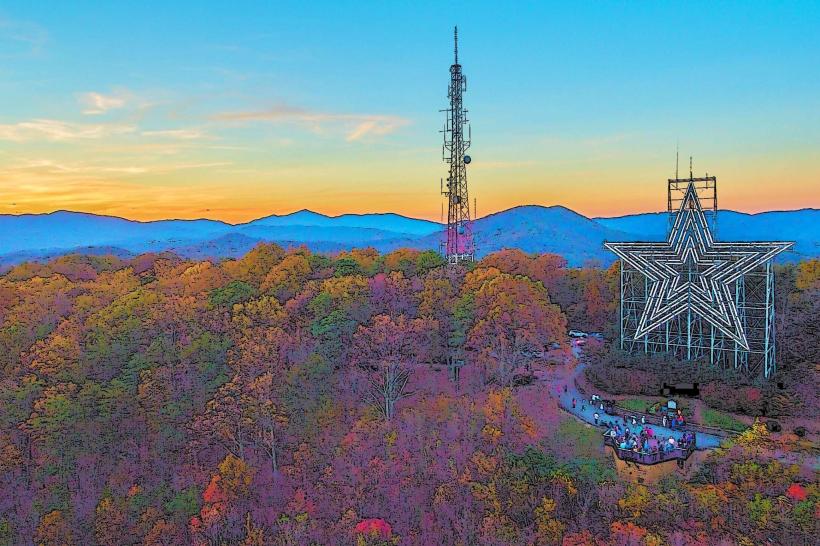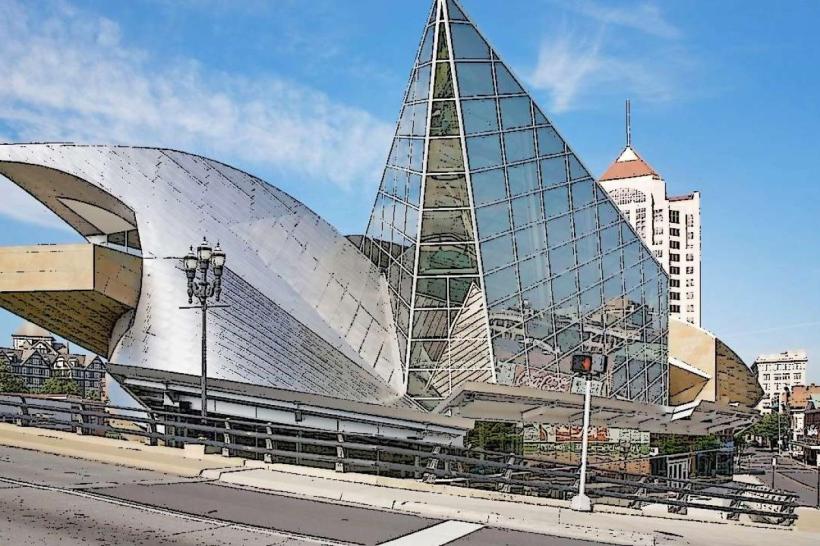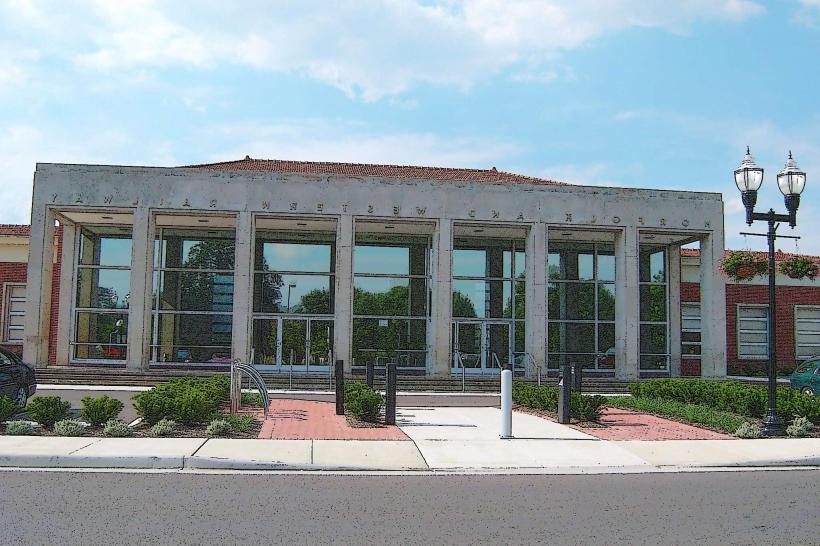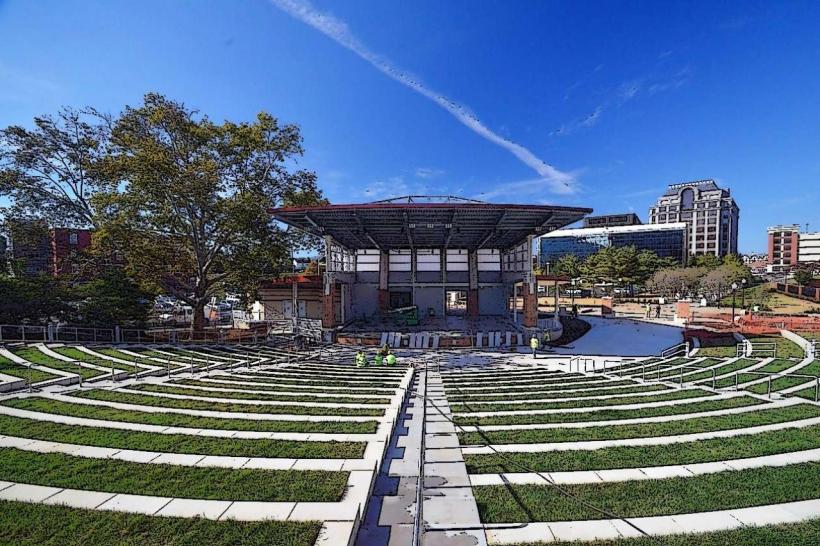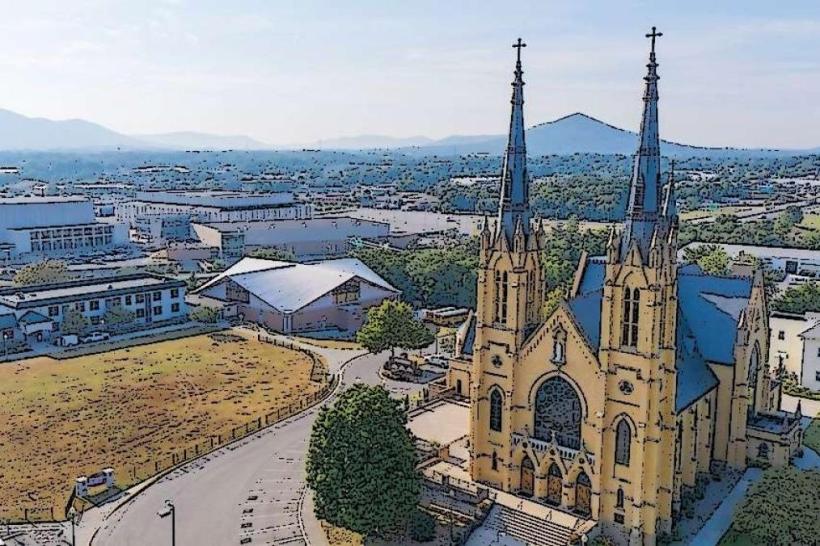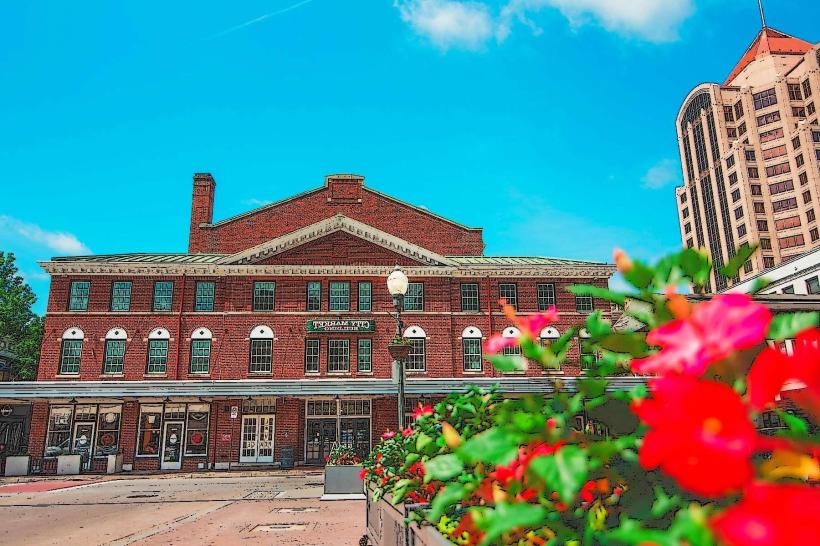Information
Landmark: Virginia Museum of TransportationCity: Roanoke
Country: USA Virginia
Continent: North America
Virginia Museum of Transportation, Roanoke, USA Virginia, North America
The Virginia Museum of Transportation (VMT), located at 303 Norfolk Avenue SW in downtown Roanoke, Virginia, is the state’s premier institution dedicated to preserving, interpreting, and celebrating the rich history of transportation in the Commonwealth of Virginia. Founded in 1963, the museum serves as a comprehensive repository of artifacts, vehicles, and stories that document the evolution of transportation modes including railroads, automobiles, aviation, and more.
Location and Setting
The museum is housed in a historic 1909 Norfolk and Western Railway freight depot, an architectural structure that reflects the deep connection between Roanoke and the railroad industry. This location underscores the city’s longstanding reputation as a vital rail hub in the United States. The spacious, industrial-style building offers a perfect environment to display the large-scale exhibits and locomotives that form the core of the museum’s collection.
Core Collections and Exhibits
The Virginia Museum of Transportation boasts an extensive and diverse collection that appeals to transportation enthusiasts, historians, families, and visitors of all ages. Its primary focus is on rail transportation, but it also features significant automobile and aviation artifacts.
Rail Transportation
Steam Locomotives: The museum is famous for its impressive collection of steam engines, including the legendary Norfolk and Western Class J 611, a beautifully restored streamlined steam locomotive that is a centerpiece attraction. The Class J 611 is considered one of the most remarkable examples of steam locomotive engineering and design, symbolizing the pinnacle of American railroading during the mid-20th century.
Diesel and Electric Locomotives: Alongside steam engines, the museum showcases diesel-electric locomotives that succeeded steam power, illustrating the technological transition in rail transport.
Railroad Cars and Artifacts: The collection includes various passenger cars, freight cars, cabooses, and related equipment, offering visitors a comprehensive look at the operational and social aspects of railroading.
Interactive Exhibits: The museum provides interactive displays and educational materials that explain the mechanics, history, and significance of rail transportation, including model railroad layouts and hands-on experiences that engage visitors.
Automobiles
Classic and Vintage Cars: The automobile collection spans from early motor vehicles to mid-century classics, showcasing the development of automotive technology, design trends, and cultural impact.
Specialty Vehicles: The museum also exhibits unique vehicles, such as antique fire trucks, commercial trucks, and motorcycles, highlighting the diverse uses of motor vehicles throughout history.
Aviation
Aircraft Exhibits: The aviation section features historic airplanes and related artifacts, representing the pioneering spirit and technological advancements in flight.
Educational Components: Displays include information about the role of aviation in transportation history, notable local aviators, and the evolution of aircraft design.
Special Exhibits and Events
The Virginia Museum of Transportation regularly hosts special exhibitions, community events, and educational programs. These may include temporary displays focusing on particular aspects of transportation history, themed events such as "Railroad Days," and hands-on workshops designed for children and families.
Seasonal and holiday-themed events often attract local residents and tourists, fostering a lively connection between the museum and the community.
Educational Outreach and Community Engagement
The museum is committed to education, offering tailored programs for school groups, families, and adults. These programs cover topics such as the science of transportation, engineering principles, historical narratives, and conservation efforts. Docents and educators provide guided tours, demonstrations, and lectures to enrich the visitor experience.
Facilities and Visitor Services
Museum Shop: The museum features a gift shop offering books, memorabilia, model trains, and other transportation-related merchandise.
Accessibility: The facility is wheelchair accessible and equipped to accommodate visitors with disabilities.
Operating Hours: The museum is generally open seven days a week, with seasonal variations in hours. Visitors are advised to check current schedules before planning visits.
Admission: Tickets are reasonably priced, with discounts available for seniors, military personnel, students, and children. Membership options provide additional benefits.
Significance and Impact
The Virginia Museum of Transportation serves as a vital cultural and historical resource for the region and the state. It preserves critical artifacts of American transportation history, educates the public about the technological and social changes that have shaped mobility, and honors the legacy of the men and women who built and operated transportation systems.
By maintaining and operating the Norfolk and Western Class J 611 steam locomotive, the museum not only safeguards a treasured piece of engineering but also provides unique opportunities for the public to witness historic steam train excursions and demonstrations, connecting past and present.
Summary
The Virginia Museum of Transportation stands as a comprehensive, multifaceted institution dedicated to telling the story of transportation’s evolution in Virginia and beyond. Through its impressive collection of locomotives, automobiles, aircraft, and related artifacts, along with engaging educational programming and special events, the museum offers visitors a deep and accessible understanding of how transportation has influenced society, culture, and technological progress. It remains a key destination for anyone interested in the history and future of mobility.

